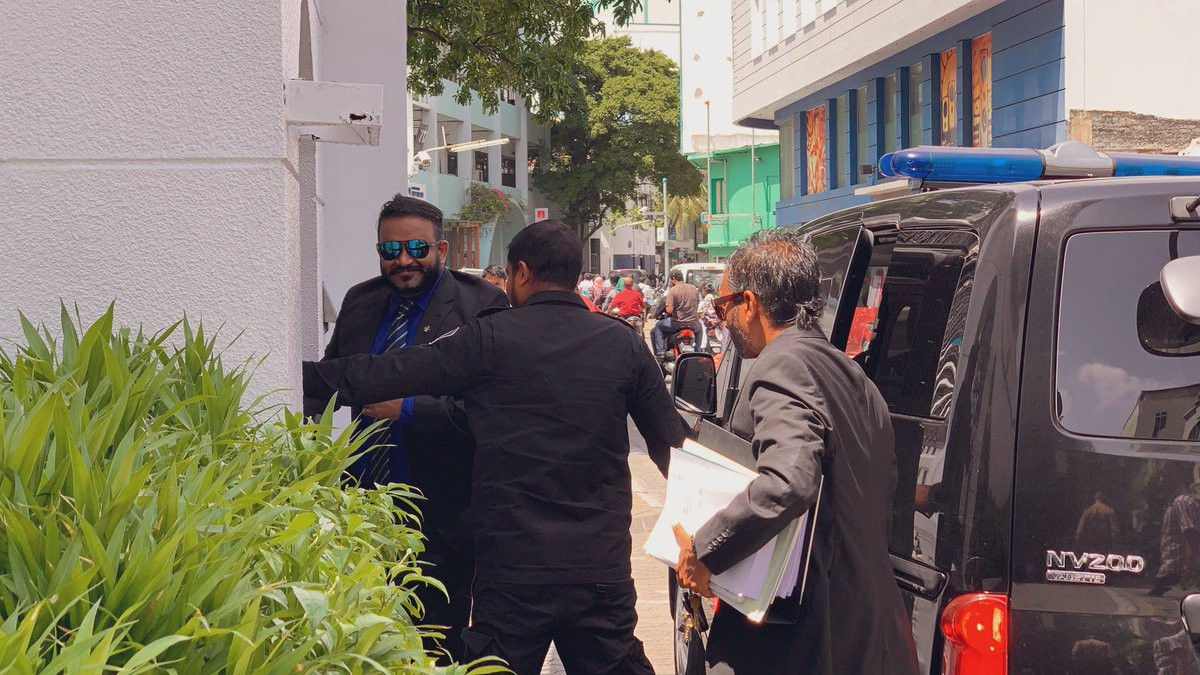State seeks to overturn ex-vice president’s terrorism conviction
Adeeb was sentenced to 10 years over the possession of a pistol.

28 Apr 2019, 09:00
State prosecutors on Sunday asked the Supreme Court to overturn former vice president Ahmed Adeeb’s 10-year terror conviction, days after he was submitted as a key witness against former president Abdulla Yameen.
Adeeb, who is also serving sentences over corruption and terrorism charges, was found guilty in June 2016 of plotting to use a pistol ahead of an anti-government protest.
In a U-turn after the verdict was upheld on appeal, state prosecutor Abdulla Rabiu told the apex court that it should be quashed because guilt had not been proven beyond a reasonable doubt.
If the conviction is overturned, it would reduce the Adeeb’s combined jail sentence to 23 years.
Become a member
Get full access to our archive and personalise your experience.
Already a member?
Discussion
No comments yet. Be the first to share your thoughts!
No comments yet. Be the first to join the conversation!
Join the Conversation
Sign in to share your thoughts under an alias and take part in the discussion. Independent journalism thrives on open, respectful debate — your voice matters.




